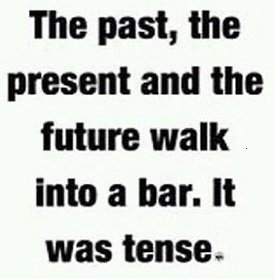The The Impotence of Proofreading (Funny YouTube Vid!)
Grammar Quiz – Darci Gibson
Remediation as a Social Construct
There were many different parts of this article that I could relate to, both as a student and as a recently established tutor. Thinking back to high school and even community college, I can remember “June”-type teachers who would awkwardly cut students off before they had finished their thought, as well as “Maria”-type students, who would ask redundant, unrelated questions about the material. My advancement into the university and ability to take more discussion-led classes (with open-ended questions and subjective answers) rather than basic G.E. classes, has allowed me more room to breathe as a student and given me more freedom as a writer. While Junes and Marias may inhabit high school/junior college classrooms, I believe that the material presented to students at a university lend them to a higher level of thinking, and therefore discussion runs more smoothly, points are more clearly made and questions/answers are more directly asked/answered.
My biggest concern as a future teacher and even as a tutor in the ESL Center is this:
How do you effectively challenge/encourage your students without overwhelming them?
It reminds me of the articles you have us read for this class. Whenever I look at them for the first time I feel as though its full of language, terms and ideas that are completely foreign to me. It isn’t until I actually start working with the article, reading through it, asking questions, actively engaging in the reading process that I realize how capable I really am. This can be reflected in FYC, and I believe that students who are motivated and eager to succeed will do great in challenging themselves through reading/writing. The unmotivated and undetermined students pose the problem. So, what if we had those students who are motivated and willing to be challenged work alongside of the students who are not? Almost as if it were a student-run remedial program, like the workshops we have here on campus, but where students within the class help their peers by answering questions they may have, guiding them in a certain direction, leading them into an idea with a question or idea, etc. This not only lends a helping hand to students who need it, but allows the students working alongside of them to excel, by paying closer attention to detail and in a sense reiterating the information they already learned and comprehend.
While it may be far too optimistic of an idea, I do very strongly believe in peer guidance and collaboration. Teacher-led discussions are fantastic for feeding ideas to your students and getting them to think critically, but I want more out of discourse and I want my students to enjoy what they’re doing in class, not simply thinking about it and returning to their daily lives.


